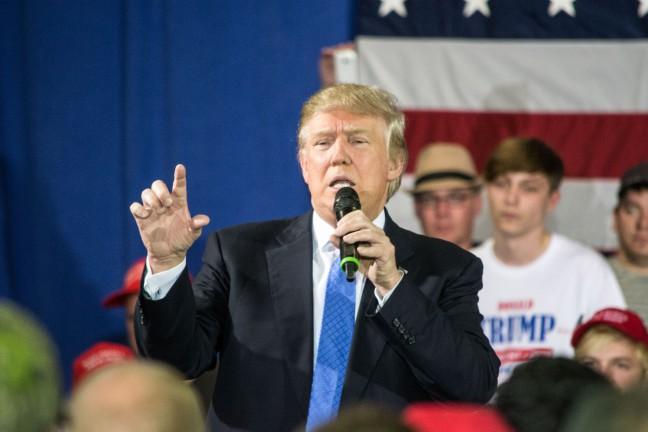Renowned author and expert in international affairs Philip Gourevitch spoke Monday about the international and domestic political implications of President Donald Trump’s administration.
Gourevitch’s work became internationally known after his coverage of the 1994 Rwandan genocide and the 2004 Abu Ghraib prison controversy, in which several Iraqi detainees were tortured and humiliated by American soldiers following the United States’ invasion of that country a year earlier.
Gourevitch began his speech by reading an excerpt from an 1838 speech delivered by then-Illinois state representative Abraham Lincoln.
In the speech, Lincoln said the single greatest threat to the country comes not from external actors, but rather from actors domestic to the U.S. This threat, Lincoln said, takes the form of those who disregard the rule of law and engage in vigilantism.
In Lincoln’s time, Gourevitch said these people often took the form of lynch mobs who attacked individuals viewed as racially inferior.
Trump, Gourevitch said, is a modern embodiment of Lincoln’s description of this greatest threat to the U.S.
“However far we may be today from these scenes of violence that Lincoln described, it’s easy to see the danger [Lincoln] was talking about gathering force in contemporary America,” Gourevitch said. “Donald Trump, I think, personifies this mobocratic spirit.”
Gourevitch identified several elements of Trump’s rhetoric and decisions as similar to the motivations and actions of the 19th century lynch mobs.
These elements, as Gourevitch identified them, include using violence to motivate mobs, identifying entire groups as enemies of himself and of the nation, outcasting those who don’t share in his ideology, attributing violence to peaceful actors and harboring hatred toward the truth and fact-checking functions of a free press.
The political danger and damage behind Trump’s similarities to 19th century vigilantism and lynch mobs, Gourevitch said, lies in his attacks on American democratic institutions and governmental bureaucracy.
Democratic institutions and bureaucracies protect the country from dangerous ideologies and put policy experts in important positions, Gourevitch said. Trump’s attack on bureaucracy is dangerous because it deprives the government of internalized resistance to decisions laden in ideology and weak in substantial policy.
“This sort of idea — the idea that you had a core, competent group of people who over time passed that competence on – [Trump] wants that gone,” Gourevitch said. “That’s what it means to wage war on bureaucracy. It means that he wants to invent reality. It means that he wants no resistance from a civil service class. He wants to get rid of that, and he’s done it.”
In what he described as “stunning,” Gourevitch said younger Americans think democratic governance is less important and don’t fear military rule as much as previous generations, a result of democratic institutions becoming less important and meaningful to the public and upcoming American generations.
This phenomenon, Gourevitch said, didn’t evolve naturally. Rather, leadership under the Trump administration has isolated Americans from democratic institutions and has lessened their importance.
“We have a situation where it’s exactly what Lincoln talked about: A lack of attachment, an alienation from our institutions,” Gourevitch said.
The result of this lack of attachment and alienation, Gourevitch said, is domestic political instability here in the United States.
In a country as powerful as the United States, this domestic political instability could have important consequences for international affairs, he added.
“It is the alienation and disaffection of Americans, internally and with the American domestic political situation, that to a very large degree drives this chaotic situation that has resulted in our foreign policy being something which leaves the world in disorder,” Gourevitch.


